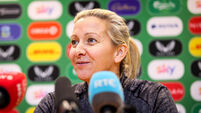Christmas schedule pushing Premier League players to brink

The 2016 schedule, which saw some teams play three matches in as little as 117 hours, has been described as “making no sense” by Liverpool manager Jurgen Klopp and as intrinsically unfair by the likes of Arsene Wenger, Claude Puel and Sam Allardyce, whose teams were given far less recovery time than many of their rivals.
Those sentiments are almost certainly to be repeated in 2017 after a draft schedule for next Christmas was tweeted by BBC pundit Gary Lineker, who claimed that matches are being planned for December 16, 20, 23, 26 and 30, plus January 1, describing the plan as “utterly bonkers”.














